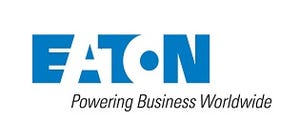The Future of Edge Computing Is Changing
Here’s how to get a jump start on providing customers with the edge computing capabilities they will likely need.
November 22, 2021

If there’s one universal truth about technology, it is that it’s constantly evolving–and the edge computing landscape is no exception. As power infrastructure requirements for the segment continue to change and drive new opportunities for channel partners, you can rest assured that Eaton is prepared for the future.
Earlier this month, Gartner released Predicts 2022: The Distributed Enterprise Drives Computing to the Edge, in which the company forecasted several trends expected to materialize in the coming years. Eaton’s existing solutions not only enable you to capitalize on these market changes, but they also make selling into edge environments even easier. Get a jump start on providing your customers with the edge computing capabilities they will likely be seeking going forward, such as increased power capacity, cybersecurity and autonomous operation.
Consider a few of Gartner’s predictions and how Eaton stands ready to address them:
Gartner prediction: By 2025, more than 50% of enterprise-managed data will be created and processed outside the data center or cloud.
A confirmation that the future of enterprise computing is occurring beyond the four walls of the data center, this prediction validates the fact that resellers must move past the confines of selling into only the gray space or the white space to be successful and relevant. Partners need vendors who can deliver holistic solutions to any environment–whether on-premises, connected to the cloud or at the edge. This is easy when you leverage all the elements of Eaton’s portfolio, which enables your customers to power data anywhere. Eaton software solutions such as VPM and VCOM, for example, provide the ability to oversee and manage enterprise-wide, multi-location assets.
Gartner prediction: Through 2025, 80% of edge devices using 5G cellular as the primary connectivity option will be decommissioned or utilize differing technology. Additionally, by 2025, bandwidth cost will be the primary driver for new edge computing deployments, versus latency in 2021.
While there was no shortage of excitement leading up to the deployment of 5G within B2B applications, the technology has not lived up to the hype the way many anticipated, primarily due to the expense associated with data consumption at the edge. As a result, companies will be forced to consider alternative solutions, likely to be asynchronous. Although previously relied upon to reduce latency when streaming, edge markets are now expected to be driven by bandwidth cost. While data can be processed and consolidated at the edge to optimize customer experience, in the future it probably won’t constantly travel back and forth via a connected network. Instead, to reduce bandwidth cost, companies will shift to asynchronous data. In this new environment, Eaton IPM software is ideal to automate multiple tasks such as system shutdown or virtual machine migration for disaster avoidance. Click on Page 2 to continue reading…
Gartner prediction: By 2027, machine learning (ML) in the form of deep learning (DL) will be included in over 65% of edge use cases, up from less than 10% in 2021.
Because machine learning requires servers with GPUs and corresponding high-power requirements, you can expect that the power consumption for most edge applications will increase. As a result, we could also see a trend from wall-mount enclosures to floor-standing racks as space requirements also expand. To support these changes, expect customers to migrate from smaller-capacity UPSs to those in the 3-10 kVA range that also afford space-saving designs, such as the Eaton 9PX, 9PXM or BladeUPS. And because Li-Ion batteries extend the service life of UPS up to 10 years–removing a critical hurdle for companies remotely operating unmanned edge computing sites–solutions such as Eaton’s new 9PX Li-Ion series represents the perfect solution for these deployments.
Gartner prediction: By 2025, as enterprises continue to converge OT/IT, 25% of edge networks will be breached, up from less than 1% in 2021.
Despite a dramatic uptick in cybercrime across almost every industry, Eaton’s continuous focus on cybersecurity helps to ensure that power devices won’t be the reason for any breach. It is crucial to not overlook physical security, as well, since edge computing must recreate the security of a data center in outlying sites. For instance, IP-based access control for rack cabinets is just as important in a remotely managed environment, and micro data center solutions based on one rack with full access security and remote management will be the blueprint for future edge deployments. To provide you with a complete solution to address these requirements, we are combining the best-of-breed components from both the Eaton and Tripp Lite portfolios.
Times may be changing for edge deployments, but as a leader in edge computing technologies, Eaton is ready for the shift. Partners can take advantage of existing solutions that are ideally suited to protect these environments today and into the future, including UPSs, environmental monitoring, PDUs and intelligent software.
This guest blog is part of a Channel Futures sponsorship.
Read more about:
VARs/SIsAbout the Author
You May Also Like



